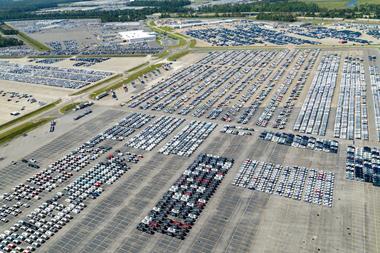
Brazil has made it known that it wishes to renegotiate a trade agreement it has with Mexico, bringing forward from 2020 to 2015 the possibility of trade in heavy vehicles.
The Complimentary Economic Agreement (ACE) first appeared in 2003 and has resulted in bilateral automotive businesses growing from little more than $1.1 billion annually to more than $2.5 billion in 2011. The Mexican Automotive Industry Association (AMIA) notes that the agreement has resulted in better integration of automotive production, which has led to a more complementary relationship, with automotive parts manufacturers in both countries benefiting.
Nevertheless, while Brazil's concerns regarding the treaty have not yet been made public, it is said to want to renegotiate this agreement to offset the current trade imbalance, which stands at $9.5 billion.
General Motors, Nissan, Ford, Chrysler Honda, Volkswagen, Toyota and Mazda are all involved in the bi-lateral automotive trade.
However, finished vehicles sales in Mexico continue to give cause for concern.
In January, these amounted to 75,297 units, 9.5% more than were registered in 2011. But according to a report issued by AMIA, the internal market "although still continuing to grow, is doing it extremely slowly, maintaining levels well below those prior to the economic crisis.
The report said that demand for new vehicles in January 2012 is 22.9% inferior to those registered in 2007 and were less than those registered in January 2001.
Production levels, in both January 2011 and January 2012, were broadly similar, with 202,701 units built in January this year, up 1.2%. Exports of finished vehicles for January dropped by 4.1% to 158,342 units.
Four out of Mexico's seven export markets also showed decreases. Exports to the US dropped by 14.9%, to Canada by 19%, to Africa by 64.9% and to Asia by 85.7%. Only those to Latin America and Europe showed increases, of 23.5% and 7% respectively.
Brazilian OEMs urged to use Argentinian parts
On the other side of Brazil's regional trade in Latin America, Argentina appears to be taking measures to address its own trade imbalance with its neighbour both by encouraging more car parts purchasing and levying an import tax.
The president of the São Paulo Federation of Industry (FIESP), Paulo Skaf, said that he would meet with car manufacturers in Brazil to persuade them to boost the number of components and spare parts they buy from Argentina. The declaration was made following a meeting with the Argentinian ambassador in Brazil.
Argentina has committed to organising an event in Buenos Aires in April to showcase the country's competitiveness and also boost auto parts sales, most of which Brazil is currently buying elsewhere.
The campaign has come about because of the current trade imbalance between the two countries, with Brazil reporting a surplus every year since 2005. In 2011 this reached $3.3 billion.
Significantly, a new import tax being levied by Argentina on imports was said not to be aimed specifically at harming relations with Brazil, but was applied to all foreign products.
In recent months, both countries have placed extra taxes on finished vehicles, which in Brazil is resulting in a reduction in the number of cars sold that were originally manufactured in Argentina.





















